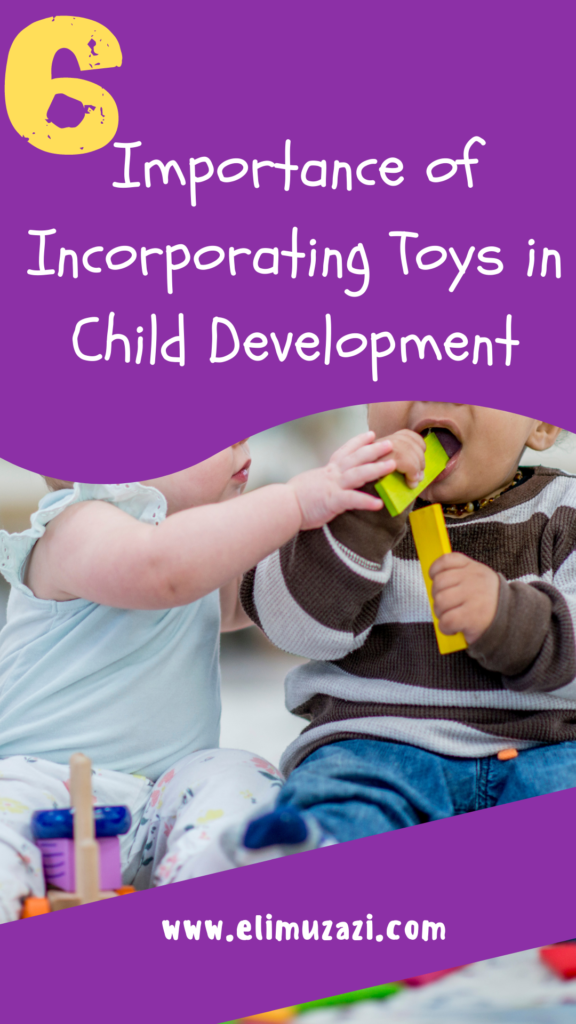
Toys are often underestimated in the cognitive growth of a child. Some parents think that it makes their child “dumber,” but it trains them into optimistic little creatures. They need toys as a slower means to incorporate them into real-world operations. They are new to this earth and need time and process to get them operating smoothly and normally. For this reason, they work together with other functions in infants to maximize their cognitive ability. Why is it important to incorporate toys in a child’s development?
- Point of Application and Expression
It is often easier for parents and guardians to understand their children’s perceptions by observing how they handle toys. For instance, infants from violent homes tend to operate violently with their toys. Parents and guardians can easily get feedback on their parenting skills by watching how their young ones operate with toys. Therefore, Toys create a medium of expression for children by handling the toys based on what they feel. In another example, you can realize that your infant is unwell or unhappy if they change the way they handle their toys. Let us allow children to develop their non-verbal modes of expression by introducing them to toys at an early age. The more the media of expression, the more expressive they will be even as they grow into adults.
- Develop Coordination
Have you ever interacted with an infant and handed two things to them consecutively? When you hand them the second item, they forget about the first one and let go of it to pursue the second one. Incorporating a toy in developing children will help them learn how to multitask. The more they interact with toys, the better their coordination, and they will handle more than one thing at a time. Infants are unable to focus on more than one thing since birth. For instance, a crying infant ceases to cry when an object captures their interest. However, toys play a vital role in cultivating children’s coordinative skills that will help them as they start school and encounter subjects like Math that require thinking, counting, and writing at the same time.
- Educational Toys to Make Learning Fun and Lovable
There are specific reasons why toys for infants are colorful. They are naturally drawn to bright colors as their minds interpret them as fun and sweet; this explains why they put everything they hold in their mouths. Therefore, educational toys introduce infants to educative content in fun ways that will keep them loving it. You don’t want your child resenting education because of disinterest. If they do, you will have a hard time teaching them new things every day. For example, playing the Tea Party game with your daughter teaches them basic skills like feeding and etiquette. It is more likely to work out in training them than forcefully training them in an actual feeding setting. Be gentle on your child and use toys to make them love the new changes.
- Independence
Infants need to interact with toys as this helps them gain some independence. If a child is so used to tagging along with their mother, introducing toys will weaken this tie. They will eventually want space to interact with their toys and prepare themselves psychologically before they start school. As inevitable as it is, we can’t always be there for our children for the rest of their lives. For this reason, it is important to allow them to develop their cognitive skills and learn to be comfortable in their own space without depending on others to be satisfied. This advice is not to say that you are preparing them to be loners. Rather, you teach them to be content doing things by themselves so they will be appreciated by others who find them living fulfilling lives.
- Practicing New Skills
You don’t have to wait to enroll your child in elementary school so they can learn certain skills. Introducing certain toys to children trains them in doing certain things. For example, a baby girl may observe how her mother changes her diaper. When she is given a doll, she will try to fit the diaper onto the doll to look like her. In so doing, the child learns how to dress themselves. It may not be perfect at first, but they will progress quickly. Have you spotted a child with shoes swapped on the feet? They are training and will eventually get it right as they interact with toy that enhance this skill. Providing a toy that sharpen infants’ skills enables them to mature into responsible human beings that will fit into society more easily than those who are not exposed to any toy.
- Sparking Creativity and Imagination
Our dreams are often inspired by the things we are exposed to. Therefore, it is important to introduce children to toys at an early age because it helps them build up visions of what they would love to do. It should be no surprise if a child develops an inclination to truck driving if the only toy they have is a truck. Parents should realize that whatever they expose their children to plays a key role in shaping their thought patterns and interests. A child exposed to diverse toys demonstrates more intelligence because they are knowledgeable through their interaction with them. Have you interacted with an infant before and felt that they were acting a bit too mature for their age? That is the effect of early exposure to educational toys.

Toys are important in developing the cognitive skills of your infant. Consider acquiring toys as a need rather than a want for them. Also, be sure to pick out the right toys for them to fully understand what skills and abilities you are cultivating in them. Infants are like blank storage disks waiting to be fed with information. Therefore, use toys to train them up as you would love them to be. Toys are important learning tools for children.
